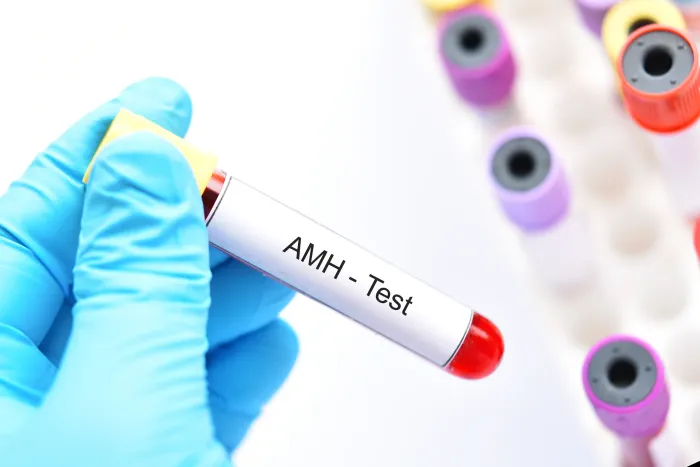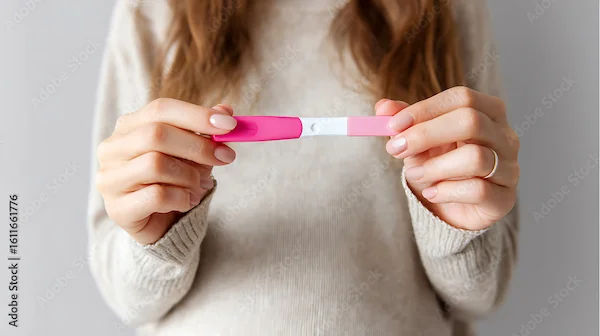Increase AMH Levels: Effective Strategies
Looking to increase AMH levels for better fertility? Explore effective strategies including lifestyle changes, diet, supplements, and medical options to support ovarian health and hormone balance.

Written by Dr. Siri Nallapu
Reviewed by Dr. Rohinipriyanka Pondugula MBBS
Last updated on 13th Jan, 2026

Introduction
If you're trying to conceive or have been diagnosed with low AMH (Anti-Müllerian Hormone) levels, you may be wondering what this means for your fertility and what you can do about it. AMH is a hormone produced by the ovaries that helps estimate a woman’s ovarian reserve—the number of eggs she has left. While low AMH levels can be concerning, there are ways to support and potentially improve them.
Understanding AMH and Its Importance
AMH is a key marker of ovarian reserve, meaning it gives an idea of how many eggs you have left in your ovaries. Higher AMH levels generally indicate a better ovarian reserve, while lower levels may suggest fewer eggs remaining. However, it’s important to remember that AMH is just one factor in fertility—egg quality also plays a crucial role.
Common Causes of Low AMH
Age: As women get older, AMH levels naturally decline.
Genetic factors: Some women may have a lower ovarian reserve due to genetics.
Medical conditions: Conditions like PCOS (Polycystic Ovary Syndrome) can affect AMH levels.
Lifestyle factors: Poor diet, stress, smoking, and excessive alcohol can contribute to lower AMH.
Previous surgeries or treatments: Chemotherapy or ovarian surgery may reduce ovarian reserve.
Can You Increase AMH Levels?
While AMH levels are largely influenced by genetics and age, certain lifestyle changes and treatments may help support ovarian health and potentially improve AMH levels. Here are some effective strategies:
1. Nutrition and Diet
A balanced diet rich in antioxidants, healthy fats, and essential nutrients can support ovarian health. Consider including:
Vitamin D: Found in fatty fish, fortified dairy, and sunlight exposure. Low vitamin D has been linked to lower AMH.
Omega-3 fatty acids: Found in flaxseeds, walnuts, and fish like salmon.
Antioxidant-rich foods: Berries, nuts, leafy greens, and dark chocolate help combat oxidative stress.
Protein: Lean meats, eggs, and plant-based proteins support hormone production.
Avoid processed foods, sugar, and trans fats, which can negatively impact fertility.
Consult Top Physicians For More Tips
2. Supplements
Certain supplements may help improve ovarian function:
DHEA (Dehydroepiandrosterone): Some studies suggest it may improve AMH levels in women with diminished ovarian reserve.
CoQ10: An antioxidant that supports egg quality.
Inositol: Beneficial for women with PCOS.
Folic Acid & Vitamin B12: Essential for reproductive health.
Always consult a doctor before starting any supplements.
3. Exercise Moderately
Regular, moderate exercise (like yoga, walking, or swimming) can improve blood circulation to the ovaries and reduce stress. However, excessive high-intensity workouts may have the opposite effect.
4. Manage Stress
Chronic stress can negatively impact hormone balance. Try relaxation techniques like:
Meditation
Deep breathing exercises
Adequate sleep (7-9 hours per night)
5. Quit Smoking & Limit Alcohol
Smoking accelerates ovarian ageing, while excessive alcohol can disrupt hormone balance. Reducing or eliminating these can help improve fertility markers.
6. Medical Treatments
If you’re struggling with fertility, consult a specialist. They may recommend:
IVF with ovarian stimulation
Hormone therapy
Egg freezing (if planning delayed pregnancy)
When to See a Doctor?
If you’re concerned about low AMH or fertility issues, consider consulting a fertility specialist. They can provide personalised advice and treatment options. If you’d like expert guidance, you can schedule a consultation with a fertility specialist through Apollo 24|7. They offer comprehensive fertility assessments and personalised care plans.
Conclusion
While AMH levels are an important fertility marker, they don’t define your ability to conceive. By adopting a healthy lifestyle, managing stress, and seeking medical advice when needed, you can take proactive steps toward improving your reproductive health.
Remember, every woman’s fertility journey is unique—stay positive and seek support when needed!
Would you like help finding a specialist or booking a test?
Consult Top Physicians
Consult Top Physicians For More Tips

Dr. Ajay K Sinha
General Physician/ Internal Medicine Specialist
30 Years • MD, Internal Medicine
Delhi
Apollo Hospitals Indraprastha, Delhi
(200+ Patients)

Dr. Sudhashree R
General Physician/ Internal Medicine Specialist
13 Years • MBBS, MRCEM
Bengaluru
Apollo Clinic, JP nagar, Bengaluru

Dr. Renu Saraogi
General Physician/ Internal Medicine Specialist
21 Years • MBBS, PGDFM
Bangalore
Apollo Clinic Bellandur, Bangalore
(250+ Patients)

Dr. Smitha Nagaraj
General Physician/ Internal Medicine Specialist
15 Years • MBBS, Diploma in Family Medicine
Bengaluru
Apollo Medical Center, Marathahalli, Bengaluru

Dr Aakash Andgi
General Physician/ Internal Medicine Specialist
9 Years • MBBS MD
Bengaluru
Apollo Clinic, JP nagar, Bengaluru
Consult Top Physicians

Dr. Ajay K Sinha
General Physician/ Internal Medicine Specialist
30 Years • MD, Internal Medicine
Delhi
Apollo Hospitals Indraprastha, Delhi
(200+ Patients)

Dr. Sudhashree R
General Physician/ Internal Medicine Specialist
13 Years • MBBS, MRCEM
Bengaluru
Apollo Clinic, JP nagar, Bengaluru

Dr. Renu Saraogi
General Physician/ Internal Medicine Specialist
21 Years • MBBS, PGDFM
Bangalore
Apollo Clinic Bellandur, Bangalore
(250+ Patients)

Dr. Smitha Nagaraj
General Physician/ Internal Medicine Specialist
15 Years • MBBS, Diploma in Family Medicine
Bengaluru
Apollo Medical Center, Marathahalli, Bengaluru

Dr Aakash Andgi
General Physician/ Internal Medicine Specialist
9 Years • MBBS MD
Bengaluru
Apollo Clinic, JP nagar, Bengaluru

_0.webp)

.webp)